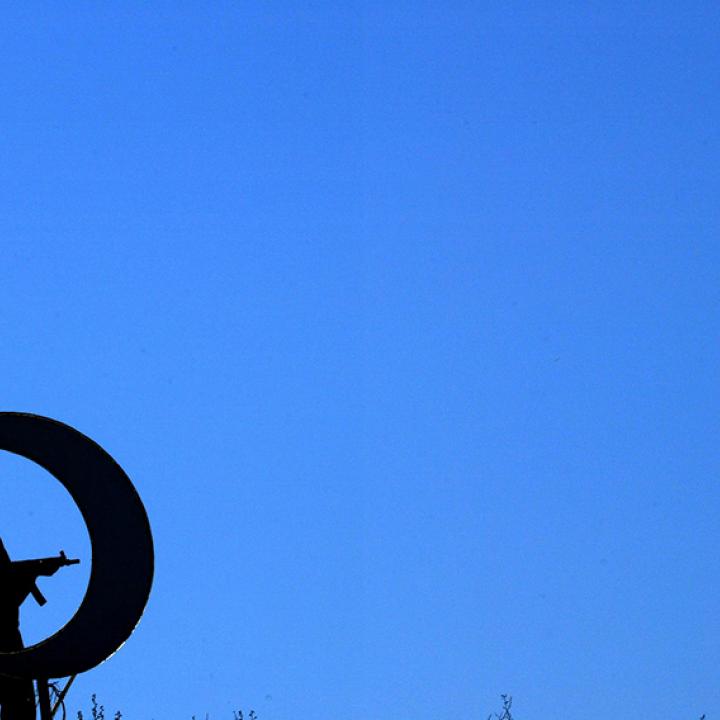
- Policy Analysis
- Articles & Op-Eds
Terror Attack in Ankara: A New Era of Kurdish Politics for Turkey?

The Kurdish issue in Turkey stands on the precipice of becoming an international problem, involving all sorts of nefarious actors from the Syrian civil war.
The modus operandi of Wednesday's deadly bomb attack in Ankara, which targeted off-duty military officers, is reminiscent of similar past attacks carried out by the Kurdistan Workers' Party (PKK). Turkey has blamed the PKK's Syrian affiliate Party for Democratic Unity (PYD) and the PYD's military wing, People's Protection Forces (YPG), for the attack. The PYD has denied responsibility for itself or for the YPG.
The PKK, on the other hand, hinted at responsibility for the attack. PKK leader Cemil Bayik told Firat News Agency "the attack in Ankara could be seen as...our retaliation."
If the PYD is indeed behind this attack, this could signal the beginning of a deeply troubling era of Kurdish politics for Turkey. For starters, such an attack would point at the growing linkage between Turkey's own Kurdish problem and the Syrian war, and vice versa. Turkey is currently fighting the PKK inside the country. Enter the PKK's Syrian affiliate, PYD, which controls territory inside Syria along the Turkish border.
RUSSIAN ASSISTANCE TO KURDS
Recently, the PYD and YPG have taken advantage of Russian airstrikes, expanding their reach in Syria to the detriment of other Syrian rebel groups backed by Turkey. This has angered Ankara to the extent that it has started to shell PYD-held territory in Syria, which could be seen as a motive for the recent Ankara attack.
If the PYD is behind Wednesday's attack, this would serve as a sign that the Kurdish movements in Turkey and Syria are coming even closer together: Turkey is fighting the PKK and shelling the PKK's sister PYD in Syria, therefore the PYD decides to escalate in Turkey by effectively opening a "second front" against Ankara.
In response to Wednesday's horrific attack, Turkey will likely launch full-throttle battle against the PKK in Turkey and against the PYD in Syria. In this regard, Erodgan's Justice and Development Party (AKP) can rely on strong public support for its anti-PKK and anti-PYD campaign given the horrific nature of the Ankara attack.
The Turkish military is known to be less adventurous in foreign policy than the country's politicians, and has thus far been resistant to the idea of a full-fledged escalation against the PYD in Syria. Now, the military will be forced to align more closely with the government for a Syria campaign.
HOW WILL TURKEY RETALIATE?
The U.S. considers the PYD and YPG as valuable allies against the so-called Islamic State. With Turkey now shelling the PYD, this will almost certainly hurt U.S.-Turkish ties, which is exactly what the PKK would want to achieve from the attack in Ankara. And if Ankara provides convincing evidence that the PYD was behind the attack, Washington will be left between a rock and a hard place to choose either Ankara or PYD as its key ally against the so-called Islamic State in Syria.
But even more alarming, Turkish escalation against the PYD will align that group even more closely with Russia. President Vladimir Putin sees the PYD as a useful ally against Turkey-backed rebels who threaten the Assad regime, which Moscow is trying to prop up.
What is more, Putin, who is intent on making Russia a great power, feels that he has an ax to grind with Turkey. On November 24, Turkey shot down a Russian plane that had violated Turkish airspace. Putin sees the downing not as an isolated incident, but as Turkey's attempt to shoot down his lofty ambitions to cast Russia as a superpower in the Middle East.
Already after the plane incident, Russia had started to provide the PYD with weapons, Turkish daily Hurriyet reports; now the PYD will pivot even further towards Russia, and the PKK will likely follow. Russian weapons could soon even end up in the hands of the PKK.
ON THE PRECIPICE
The Kurdish issue in Turkey stands on the precipice of becoming an international problem, involving all sorts of nefarious actors from the Syrian civil war. This is ultimately a bad outcome for Turkey, as well as for the Kurds. Turkey can hope to solve the Kurdish problem one day if it remains a strictly domestic problem. If the Kurdish issue becomes further internationalized, however, Ankara can forget solving this problem on its own because there will be so many who will try to undermine a Turkish-Kurdish rapprochement.
If the Kurds become Russia's security clients in the region, it will be difficult for them to break this relationship: Moscow will force the Kurds to do what is good for Russia, not what is good for the Kurds.
Turkey has to prevent the PYD/YPG and the PKK from becoming Russia's clients. This requires Ankara to take a deep breath and act not with anger, but with wisdom.
Soner Cagaptay is the Beyer Family Fellow and director of the Turkish Research Program at The Washington Institute.
CNN

